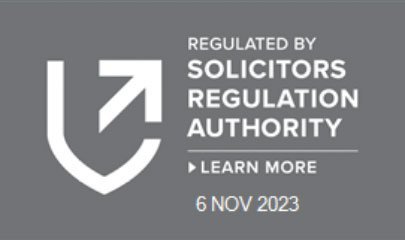Who Can Apply for A Child Arrangements Order?
Regarding who can ask the court for a Child Arrangements Order (CAO), the following individuals can apply for a Child Arrangements Order in the UK:
- Parents and step-parents: Parents and step-parents have the right to apply for a Child Arrangements Order without seeking permission from the court.
- Guardians: Guardians who have been appointed through a court order or a parental responsibility agreement can also apply for a CAO.
- Special Guardians: Similarly, special guardians who have been granted special guardianship through a court order can seek a Child Arrangements Order.
It is important to note that while parents, step-parents, guardians, and special guardians have the right to apply for a CAO without permission, other family members such as grandparents would need to seek permission from the court before making an application.
Step-By-Step Guide To Fill Out The Application
Starting the Process: When there is disagreement about the child’s living arrangements, a Child Arrangements Order (CAO) becomes necessary. Once this decision is made, you can obtain the required forms from court offices or conveniently access them online.
Gathering Important Information: Begin by meticulously collecting comprehensive details about yourself, the child, and the other parent/guardian, including personal and health information.
Completing the Application Form: Utilise the gathered information to accurately complete the application form. Take utmost care to clearly and honestly state the reasons for your application.
Paying the Application Fee: Depending on your financial circumstances, you may be required to pay an application fee. If so, promptly fulfil this requirement to ensure smooth processing of your application.
Submitting the Application: Once the form is completed and the fee, if applicable, has been submitted, it is time to forward your application to the appropriate court. Ensure all necessary documents are enclosed
Attending a MIAM: Prior to a court hearing, it is common for parties to attend a Mediation Information and Assessment Meeting (MIAM). This is an opportunity to explore the possibility of resolving disputes through mediation, a less adversarial approach that aims to find amicable solutions.
Going to Court: If mediation does not result in an agreement, the case will be presented to a judge who will judiciously prioritise the child’s best interests when making decisions.
Reaching an Agreement: While court intervention is an option, it is always preferable if both parties can reach a mutual agreement on the child’s arrangements without the need for judicial involvement. This ensures a more collaborative and harmonious outcome.
Court Decision: In the event that no agreement is reached, the court will grant a Child arrangement Order based on a thorough assessment of the child’s best interests.
After the CAO is Granted: Once the CAO is granted, it is of utmost importance to fully adhere to its provisions. If circumstances change over time, parties can revisit the order through proper legal channels to seek necessary modifications.
How To Enforce And Change Orders Regarding Child Arrangements?
Enforcement:
Enforcing child arrangements orders in England and Wales is crucial to prioritise the well-being of the child. If the other parent fails to make the child available to the non-resident parent you have the option to seek enforcement. The court holds the power to provide evidence of non-compliance and impose penalties such as fines, community service, or even imprisonment in extreme cases. When seeking enforcement, it is essential to contact the same family court that issued the order. The court’s primary focus is always on the best interests of the child and ensuring the enforcement of the order, which contributes to maintaining stability and a secure environment for the child’s upbringing. Throughout this process, it is imperative to keep in mind that the welfare of the child is the priority.
Changes:
Modifications to child arrangement orders in England and Wales are possible when circumstances evolve and necessitate adjustments. If a parent or guardian believes changes are necessary in the existing order, they must apply to vary the order, in the same family court that issued the original order. To succeed in obtaining a variation they must demonstrate that the proposed changes are in the best interests of the child. Factors such as relocation, a change in a parent’s job, or the evolving needs of the child can trigger the need for modifications. The court thoroughly evaluates the situation based on the welfare of the child. By seeking a variation to the order, you can ensure that the child’s arrangements remains aligned with their evolving needs and circumstances.
How Allard Bailey can support you.
When it comes to applying for a child arrangements order, understanding the procedure is paramount for parents and guardians alike. While it can be a challenging time, this legal decision holds the power to shape a child’s future in terms of living arrangements and visitation schedules. By following the necessary steps and seeking legal advice if needed, parents can create a stable and supportive environment for their little ones during family disputes. It is crucial to keep in mind that the ultimate goal of this process is to ensure the child’s well-being and happiness.
Our team of legal professionals have extensive experience in dealing with cases involving child arrangements orders, and we’re committed to achieving the best possible outcome for our clients. If you’re going through a divorce or separation and need support with child arrangements orders, contact us for a consultation.































































